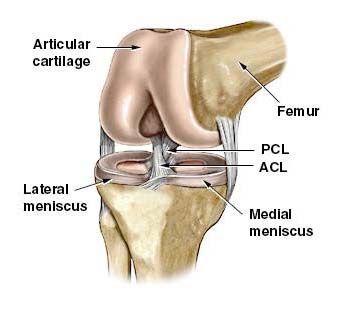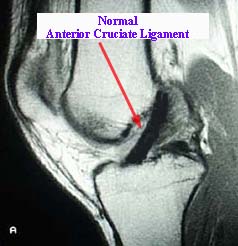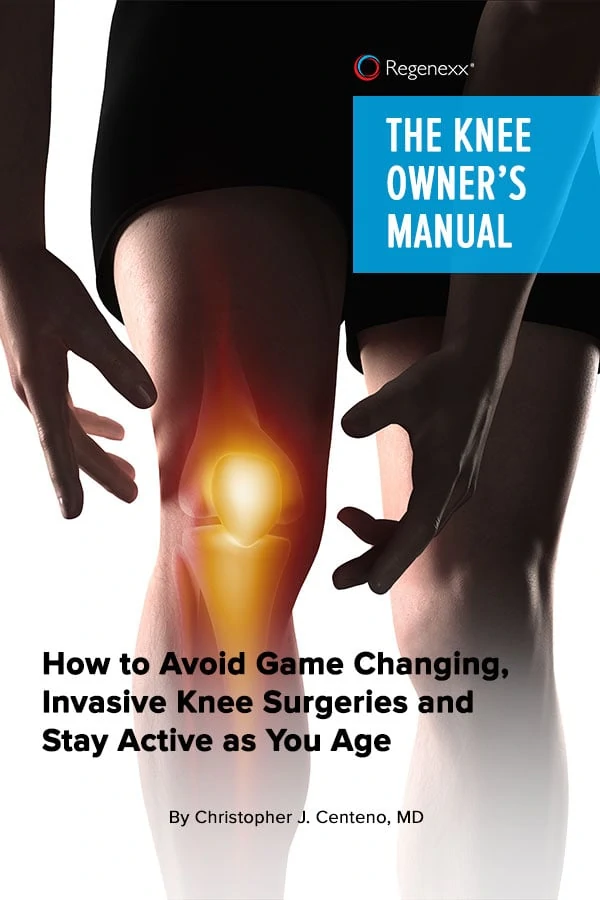Physical examination was significant for tenderness along the patellar tendon, slight limp, muscle tightness in her lumbar spine and tenderness and pain with palpation of her sacro-illace jont. Most significant however was the instability of her knee which her husband noted from across the room. The anterior cruciate ligament (ACL),was very loose suggestive of a tear. Review of the MRI demonstrated a chronic tear in the ACL.
The anterior cruciate ligament is one of four major ligaments in the knee. It originates from the back portion of the thigh bone( femur) and attaches to the front portion of the shin bone ( tibia). It prevents forward movement of the tibia in relation to the femur. It provides critical stability to the knee. Tears of injury to the ACL result in instability of the joint with resultant pain.


There is no substitute for a complete physical examination. MRI’s alone can not make a diagnosis. Putting the physical findings together with MRI results is the standard of care at The Centeno-Schultz Clinic.
Utilizing a patient’s own stem cells, repair of a partial tear of the ACL is possible. The Regenexx procedure affords patients the opportunity to use their own mesenchymal stem cells to treat common orthopedic conditions.

